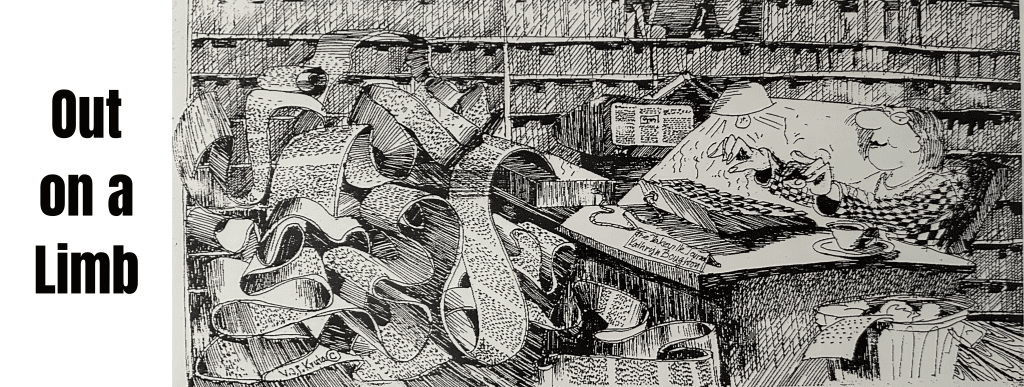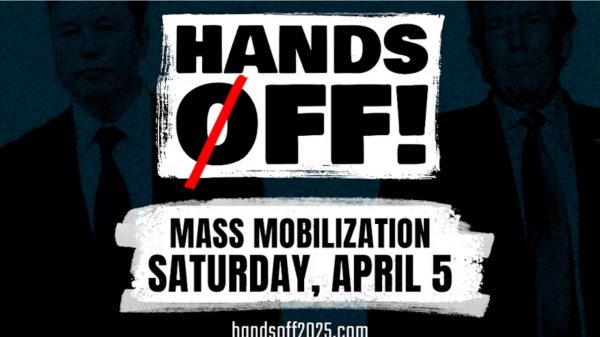
When my mother was very old, nature robbed her of all that made her life richer.
She was an avid reader and accomplished needle worker, but macular degeneration took away her sight. Her hearing faded and she could no longer listen to television easily.
As her world narrowed, I tried to compensate by downloading books on a Kindle and bought a good headset so she could listen to recorded books.
Her taste was eclectic, and I suggested some of the better historical biographies coming out at that time, such as Jon Meechan’s “Thomas Jefferson, the Art of Power” and Walter Isaacson’s “Benjamin Franklin, An American Life.”
Mom was only months from her death, but she listened with interest and then wonder. Reflecting back on her school years 80 years before, she said, “They never taught us these things.”
Indeed, her generation of young Americans was presented with a Utopian view of American history that carried forward into my own youth.
I devoured our library’s young readers series about American “heroes.” George Washington, Abraham Lincoln, Thomas Jefferson, Andrew Jackson and lesser characters such as Daniel Boone, Jim Bowie and Davy Crockett, were all presented as paragons.
Important they were; paragons they were not.
George Washington, for instance, lusted after his best friend’s wife for years before marrying Martha Custis, a newly widowed and vastly wealthy young woman he met but twice before standing before the altar.
George, who had a modest estate of his own, instantly became a man of importance in the Colonies by virtue of his manly appearance. Together, the Washingtons owned hundreds of enslaved blacks
Andrew Jackson, another slaveholder, made it his top priority upon becoming president to pass legislation allowing the forced removal of 18 tribes—most notably the anglicized Cherokees—to new lands on the other side of the Mississippi in an evacuation that many see as genocide. Along the so-called Trail of Tears, thousands of Native Americans died.
Nowhere did these stories appear in my juvenile reading.
Nor was the concept of Manifest Destiny—the belief that the U.S. was destined to expand across the continent at the expense of nations that already owned the land—ever mentioned in the story of the Alamo, where Crockett and Bowie both died in an attempt to wrest Texas from Mexico.
By presenting these historical characters as perfect examples of American manhood (there were no women in the series), adults of that era perpetuated the beau idéal of American excellence.
Quite frankly, it was much more comforting than the more realistic portrayals by modern authors and the consequent awareness that our “shining city” was built on a hill of cruelty, deceit and avarice.
If history is written by the winners, then America and England have been fortunate in having good press agents.
England, which has a 1,000-year history of brutal suppression of other cultures (cutting off the thumbs of weavers in Ireland was not nice, nor were the Boer War concentration camps).
England actually had a secret policy called Operation Legacy implemented in the 1950s to remove incriminating documents from former colonies before each became politically independent. As a result, it has woven a picture of a plucky little island filled with resilient people with stiff upper lips.
Until recently, despite its racism, manifest destiny, corporate greed and predilection toward gun violence, the United States has managed to perpetuate an image of itself as a benevolent protector of the world’s oppressed and needy.
To a complex degree, I think the books my mother and I read worked. We grew up with a sense of civic responsibility, of a need to function as a moral people to perpetuate the examples of our idols. It was a message reinforced by church, by the Boy and Girl Scouts and other civic organizations.
Even our first “modern” president, John F. Kennedy, exhorted us to think not about ourselves, but about what we could do for our country. Kennedy was a remarkably flawed character, but his words still resonate with me.
Sadly, that sense of purpose and moral clarity has been hopelessly muddied in a society that seems to have lost its way. We used to know what was right and wrong and were expected to act accordingly.
Does anyone remember what happened to leading presidential candidate Gary Hart when a picture surfaced in the 1980s of him holding a woman who was not his wife on his lap? Rumors that he was a serial philanderer were proved and within three weeks his presidential aspirations were dashed.
As recently as 2011, Americans displayed some moral fiber.
Presidential candidate John Edward’s career abruptly ended when he was indicted by a federal grand jury on six felony charges of violating campaign contribution laws to cover up an extramarital affair. Never convicted, the revelation of the affair and the child he fathered nevertheless severely damaged his public image.
In 2024, our president-elect was convicted of falsifying business records about “hush money” he paid to a porn star he reportedly slept with to hide that information from voters in 2016. There appear to be no consequences.
There seems to be no end of tolerance for misbehavior and pettiness by our leaders.
George Washington, who reportedly had a ferocious temper, never (as far as I know) used his power to punish his political enemies—even the backstabbing Thomas Jefferson. But we now have a candidate for FBI director who has an “enemies list” he has pledged to destroy.
At the same time, on the other side of the aisle, President Joe Biden, who had pledged to follow the rule of law, succumbed to parental concerns and pardoned his errant son of all crimes he committed or may have committed over a decade.
Not exactly the moral high ground when other people’s sons and daughters suffer the full consequences of their misdeeds.
Americans’ rating of the state of moral values in the U.S. and their outlook for morality in the future are at their most negative points in 22 years of measurement. A 2023 Gallup Poll shows that a staggering 83 percent of Americans feel the nation’s morals are becoming worse, up five points from 2022 and 16 percent from 2021.
These ratings come at a time of increased gun violence, rising reports of disturbances on air flights, altercations between attendees at public meetings, a continued decline in religiosity, and an increasing willingness among elected officials to enact laws to regulate abortion, transgender healthcare and sports participation.
It is easy to be discouraged, but morality is something each of us has the power to affect. The stoic philosopher Zenos believed that virtue and ethical living create the foundation of a happy life, and that moral integrity is essential to achieving virtue.
Power may always engender corruption, but we as citizens can rededicate ourselves to the concept of a just and compassionate America. We can act out these virtues in our own communities and vote for the leaders most likely to shape our nation in that image.
Failing that, we should get a good press agent.
Kathryn Boughton is editor of the Kent Dispatch. Her views do not necessarily reflect the opinion Kent News, Inc., the Dispatch’s parent company.





































Leslie Lillien Levy
December 14, 2024 at 11:50 am
Wonderful essay, Kathryn!